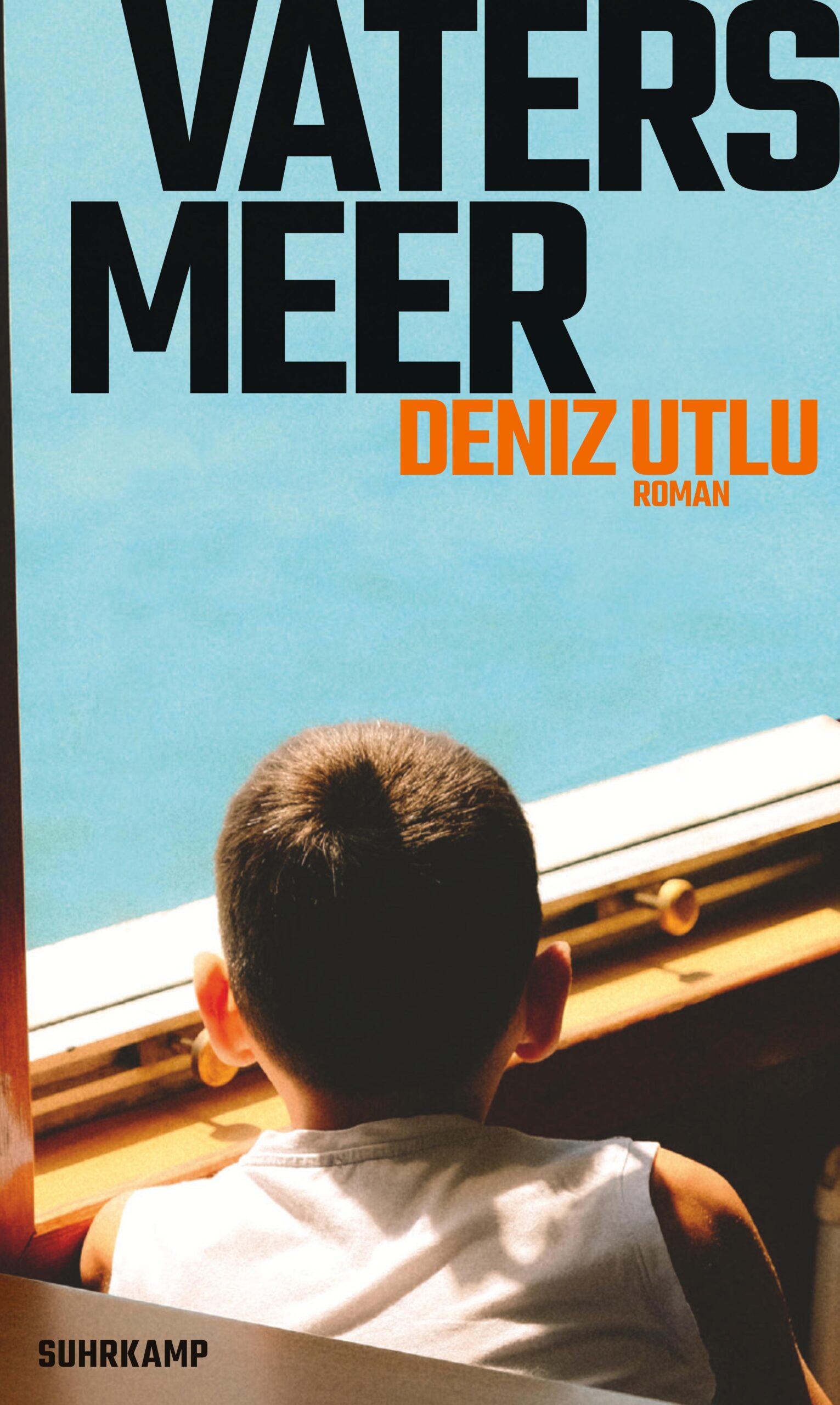
Vaters Meer
A gentle melancholy pervades Deniz Utlu’s new novel Vaters Meer (Father’s Ocean): Yunus recalls his father, as he realizes how unreliable and fleeting memories are. Yet he has to rely on his memory: “There is the last page of a book and the last hour of a life. But I can read the book again. All that remains of life is the memory.”
Yunus grows up as an only child in Hanover and travels with his parents to Kızkalesi in Turkey every summer. When Yunus is 13 years old, his father Zeki has two strokes and is almost completely paralyzed as a result. His condition is called locked-in syndrome, and he is unable to make himself understood by speech or movement. He can only communicate by opening or closing his eyes. So Zeki is first cared for in a nursing facility and then at home by Yunus’ mother, until he dies ten years after the strokes.
Yunus’ memories are selective, but flow effortlessly into one another despite major time jumps. Piece by piece, they create a detailed picture of him, his father, their strengths and weaknesses, and their perspectives on the world. Yunus recounts everyday moments spent with his father, such as regular visits to flea markets and swimming in the ocean. Many moments emerge that he has stored away as special, such as the first trip to Zeki’s birthplace of Mardin or Zeki’s visit to history class at Yunus’ high school. As an adult, Yunus begins to supplement his memories with research. He travels to places where his father lived and tries to retrace the stages of his life: Zeki arrived in Hanover from Mardin via Istanbul in a roundabout way, and his decisions were shaped by Turkish and German politics in the second half of the 20th century.
Vaters Meer follows the thoughts of a boy who has to deal with the loss of his father with great sensitivity. Yet Utlu treats the sad subject in such a way that it is not too devastating. Rather, the novel shows how life goes on in spite of tragedy. The strength of the novel lies in the development that Yunus goes through and in his processes of reflection. It becomes clear that a son’s perspective of his father changes as he grows older, and that the past sometimes needs to be reevaluated. Memories are not set in stone. Yunus’ mother really only takes a supporting role in the novel, but I particularly liked that Yunus has more understanding and empathy for her as an adult. There are intimate scenes between the two that show Yunus slowly leaving his youthful self-centeredness behind. Vaters Meer is gentle, bittersweet, and thoroughly worth reading!
(No English translation)
Order the book here and support us! The work behind poco.lit. is done by us – Anna und Lucy. If you’d like to order this book and want to support us at the same time, you can do so from here and we will get a small commission – but the price you pay will be unaffected.

